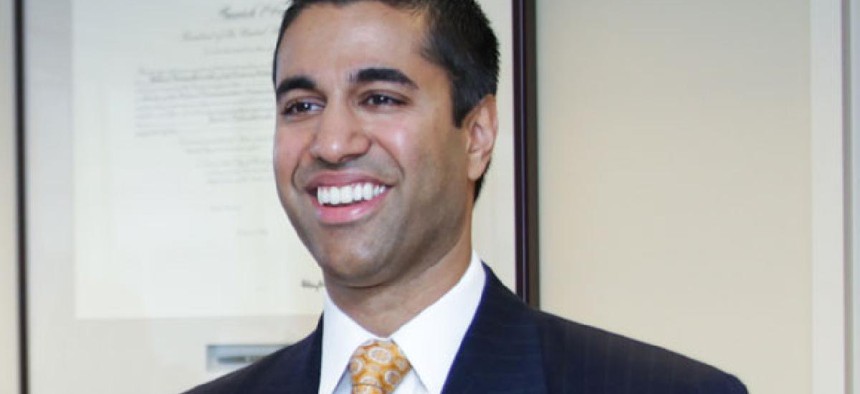Outdated regs hinder investment in new tech, FCC commissioner says

Federal Communications Commissioner Ajit Pai FCC
Ajit Pai calls for telecom task force to transform infrastructure.
Federal Communications Commissioner Ajit Pai on Tuesday called on the commission to set up a task force that would help accelerate the transformation of the nation's communications infrastructure from old-copper based telephone networks to ones based on Internet technology.
"This task force would study how to hasten the Internet transformation," Pai said during a forum on transforming the Internet sponsored by the Communications Liberty and Innovation Project. "It would help us modernize the commission's outdated regulations and it would allow us to account for and accelerate the dramatic technological changes in the communications industry."
Pai said the proposed IP Transition Task Force should recommend the repeal of "old-world regulations that no longer make sense in a competitive, all-IP world" and discourage investment in new technologies.
One of the first candidates for repeal is an open proceeding from 2010 that called for reclassifying some broadband services as a telecommunications service, he said. FCC Chairman Julius Genachowski offered the proposal in 2010 in response to a court decision that undermined the FCC's authority over broadband providers and limited attempts to impose open Internet rules on broadband providers. The reclassification proposal was sidelined when the FCC adopted net neutrality rules in December 2010 using different authority.
"We should make clear that we have no intention of employing such a back-to-the-future regulatory approach," said Pai, a Republican who joined the commission earlier this year.
Pai also appeared to indicate support for re-examining the 1996 Telecommunications Act. He said the law is "hopelessly outdated." He stopped short, however, of calling on Congress to revamp the law. Instead, he said until the FCC gets new direction from Congress, "our charge at the commission is to administer the act as it stands."
In a later panel discussion, several industry experts, however, said Congress needs to overhaul the 1996 law. They argued that the communications landscape has changed dramatically since the law was enacted. Many of the traditional communications sectors have converged with cable companies now offering phone and Internet access along with its video service and traditional phone companies offering video and Internet service as well.
"In the very long run, the act needs to be rewritten," USTelecom Senior Vice President Jonathan Banks said.
But he and others said there are other steps the FCC can take now, including using its "forbearance" authority to remove burdensome regulations that they say provide companies with a disincentive to invest in modern, next-generation networks.
While agreeing that the FCC can take steps now to remove unnecessary regulatory barriers, Congress needs to lead the policy-setting effort going forward, Jeffrey Silva, a telecom analyst with Medley Global Advisors said. "This issue of IP transformation almost begs for a debate, a serious debate among all the stakeholders and for Congress to take it up in a serious way and to draw some contours and give some direction to it," Silva said.
Despite this, he said he wasn't optimistic that Congress could take on such a big issue in the current political climate.





